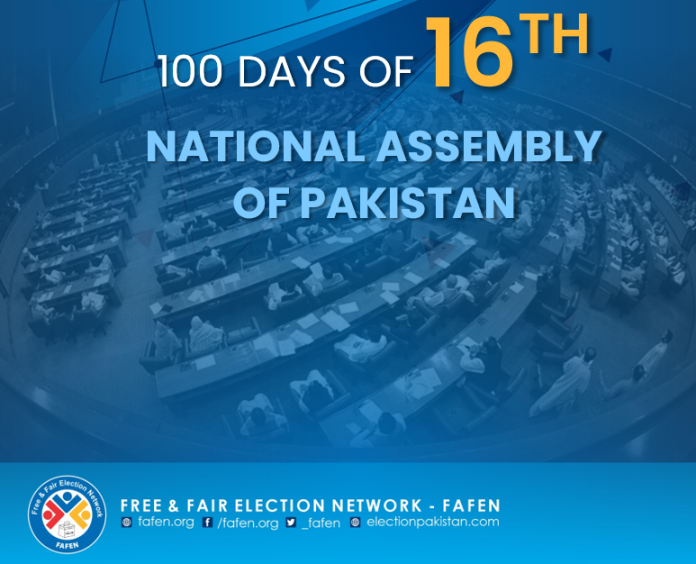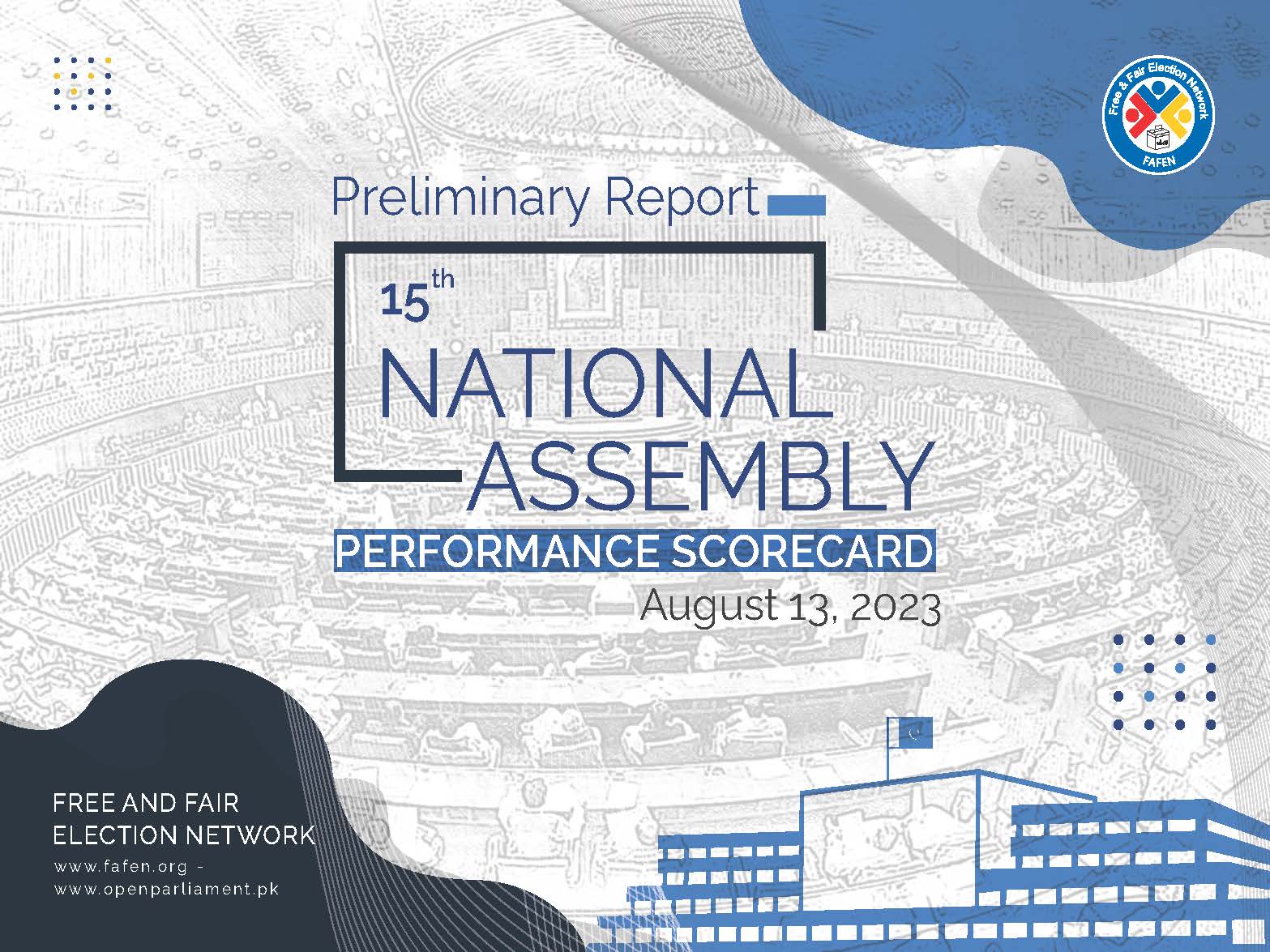ISLAMABAD, June 11, 2024: In the first 100 days since taking oath on February 29, 2024, the 16th National Assembly of Pakistan demonstrated a performance similar to its predecessors, characterized by a slow pace of legislation despite high attendance. Amid heightened polarization and unresolved electoral controversies, the House encouraged bipartisanship by allocating nearly 54 percent of the time used for points of order to the opposition. Another hallmark feature of the incumbent Assembly was its enhanced focus on parliamentary transparency and gender responsiveness. However, the delay in forming standing committees and restrictions on citizens’ access to the proceedings marred its overall performance.
Following the February 8, 2024 elections, no political parties secured a simple majority. The Pakistan Muslim League – Nawaz (PMLN) formed the federal government with the support from eight parties including Pakistan Peoples Party Parliamentarians (PPPP), Muttahida Qaumi Movement (MQM), Pakistan Muslim League (PML), Istehkam-e-Pakistan Party (IPP), Pakistan Muslim League Zia (PML-Z), Balochistan Awami Party (BAP), and National Party (NP). The Sunni Ittehad Council (SIC) emerged as the largest parliamentary party after a majority of independent lawmakers (84) supported by Pakistan Tehreek-e-Insaf (PTI) joined it. However, they opted to sit on opposition benches. The House still remains short of 26 members as the Supreme Court is yet to decide the legal dispute over SIC’s eligibility for representation on the seats reserved for women and non-Muslims.
The Senate and Presidential elections followed shortly after the general elections, in contrast to the previous assemblies where the treasury parties in the National and Provincial Assemblies had to wait for several months for their mandate to be reflected in the Senate composition.
Plenary Proceedings: The 16th National Assembly had a slow legislative start with only a money bill approved during the first 100 days. Around half of legislative business presented before the House pertained to the outgoing caretaker government. Cumulatively, the House held 23 sittings spanned over 66 hours and 33 minutes. The Speaker and Deputy Speaker chaired 84 percent of the proceedings. Points of order consumed 30 percent of the plenary’s time, while five percent was lost to breaks. Prime Minister Shehbaz Sharif attended only two sittings (10 percent) after his election as Leader of the House, . although he attended the first two sittings of the Assembly before his election. Comparatively, former Prime Ministers Imran Khan and Muhammad Nawaz Sharif had attended 29 percent and 26 percent sittings during first 100 days of their respective terms. The Assembly elected its standing committees and authorized the Speaker to nominate members to the committees on May 17. The formation of committees was delayed by more than a month from the time mentioned in Rule 200(1) of the Rules of Procedure and Conduct of Business in the National Assembly 2007. According to the rule, the standing committees should have been formed within 30 days from the election of the Leader of the House i.e., by April 2, 2024.
Participation and Business: Out of 310 members, 159 (51 percent) actively participated by sponsoring agenda items or participating in discussions on floor of the House. Female lawmakers had a higher participation rate (61 percent) compared to male lawmakers (49 percent). The House addressed 76 percent of its business, including 20 legislative bills, 93 questions, 28 calling attention notices (CANs), and 11 resolutions. The plenary attendance averaged 230 members per sitting, with a maximum attendance of 302 and a minimum of 176.
First Speech by Leader of the House: In his maiden speech, the Prime Minister outlined his government’s plans for foreign relations, agriculture, economic affairs, tax reforms, energy, human development, and law and order. Specific commitments included providing high-quality seeds to farmers, creating export zones, broad tax reforms, renewable energy projects, scholarships for students, and addressing terrorism and the issue of missing persons in Balochistan.
Transparency and Accessibility: The details of the House proceedings and records are largely available on the National Assembly’s website. However, the availability of livestreams and video recordings of the proceedings remains limited and selective. Additionally, the citizens’ access to the Common Man’s gallery has been restricted on the pretext of security concerns.
Gender Sensitivity: Notwithstanding isolated display of gender-insensitivity by individual lawmakers, the Assembly in general kept a gender-sensitive and responsive outlook towards women’s issues. The House constituted a Parliamentary Committee on Gender Mainstreaming to solicit recommendations on women’s empowerment. In a welcome departure from culture of impunity towards gender-insensitive remarks, the House censured the use of inappropriate language against women lawmakers by adopting a treasury-sponsored resolution. The maiden addresses by the Prime Minister and the President also featured commitments and support to promoting gender equality. Lawmakers from both sides of the aisle highlighted various issues facing women and sought the treasury’s intervention to address them.
To download complete report, click here




